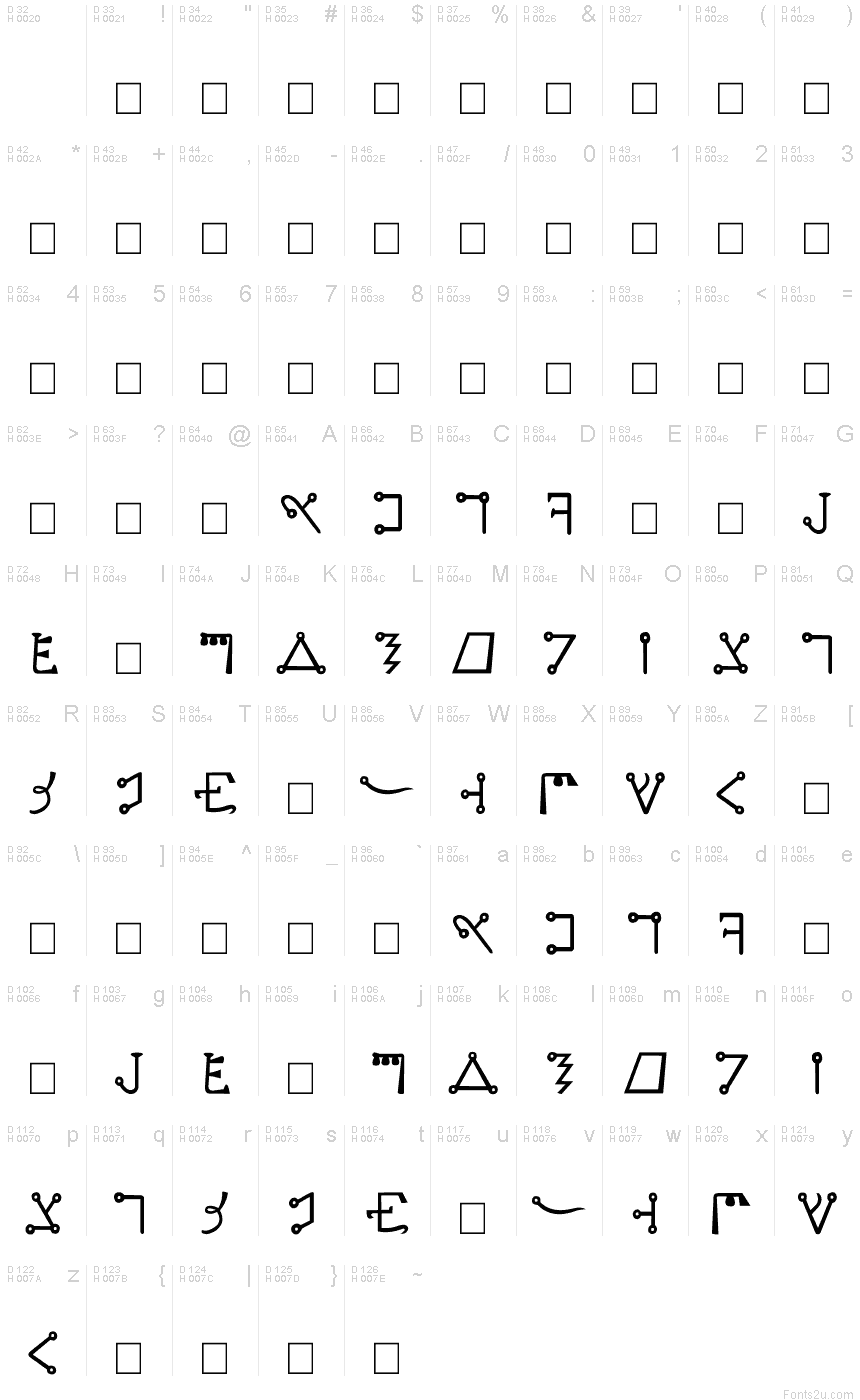Passage du Fleuve
TrueTypeUso pessoal
- Acentos (parcial)
- Euro
Passage-du-Fleuve.ttf
Tags
Mapa de caracteres
Porfavor use o menu suspenso para ver os diferentes mapas de caracteres contidos nesta fonte.

Informaçőes de fontes básicas
Nota de direitos autorais
© 2002 Daniel U. Thibault. All Rights Reserved.
Família da fonte
Passage du Fleuve
Subfamília da fonte
Regular
Identificação única da subfamília
Urhixidur:Passage du Fleuve Regular:2002
Nome completo da fonte
Passage du Fleuve
Versão da tabela de nomes
Version 1.00; 2002 August 28
Nome da fonte do postscript
Passage_du_Fleuve
Nome do fabricante
Designer
Daniel U. Thibault
Descriçăo
Passage du Fleuve 2002 1.00
A medieval (circa XIIth-XVth century) occult script derived from Hebrew. The French name means "Passing the River" and is probably an allusion to Deuteronomy, Chapter II, Verses 13-16, where Moses leads Israel across the river Zered into Canaan. With the Celestial and Malachim/Angelic/Royal scripts, it forms the Seraphic family of scripts. It is currently used by some Wiccan practitioners.
Passage du Fleuve is included by Heinrich Cornelius Agrippa in Book III (Ceremonial Magic), Chapter XXX («Another manner of making Characters, delivered by Cabalists») of his De Occulta Philosophia (written in 1509 and first printed in 1533), unfortunately without mentioning any details. Francis Barrett derived the alphabet from Agrippa, along with much of the text of Agrippa's book, and presented it in his «The Magus: A Complete System of Occult Philosophy», published in 1801.
A medieval (circa XIIth-XVth century) occult script derived from Hebrew. The French name means "Passing the River" and is probably an allusion to Deuteronomy, Chapter II, Verses 13-16, where Moses leads Israel across the river Zered into Canaan. With the Celestial and Malachim/Angelic/Royal scripts, it forms the Seraphic family of scripts. It is currently used by some Wiccan practitioners.
Passage du Fleuve is included by Heinrich Cornelius Agrippa in Book III (Ceremonial Magic), Chapter XXX («Another manner of making Characters, delivered by Cabalists») of his De Occulta Philosophia (written in 1509 and first printed in 1533), unfortunately without mentioning any details. Francis Barrett derived the alphabet from Agrippa, along with much of the text of Agrippa's book, and presented it in his «The Magus: A Complete System of Occult Philosophy», published in 1801.
Informações da fonte estendida
Plataformas suportadas
PlataformaCodificaçăo
UnicodeUnicode 1.0 semântica
MacintoshRomano
MicrosoftUnicode BMP só
Detalhes da fonte
Criado2002-08-17
Revisăo1
Contagem de glifos248
Unidades por Em2048
Direitos de IncorporaçăoIncorporação de edição permitida
Classe da famíliaSimbólica
PesoMédio (normal)
AmplitudeMédio (normal)
Estilo para MacNegrito
EndereçoApenas glifos fortemente da esqueda para a direita + neutros
Padrăo naturalRegular
AfastamentoNăo monoespaçado